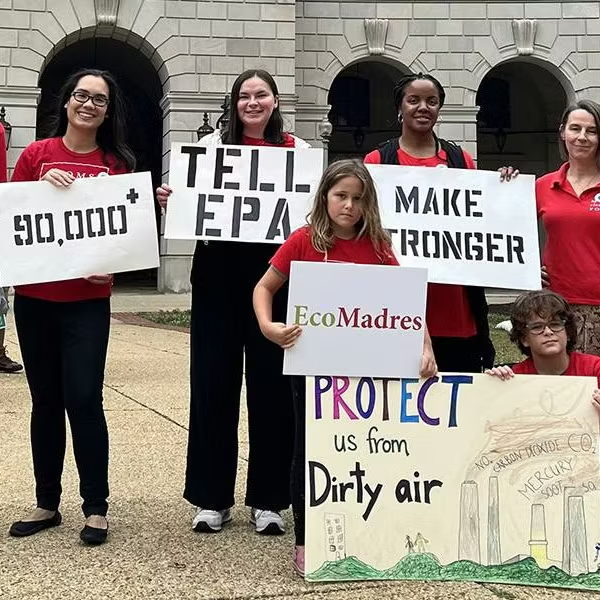The Center for Biological Diversity on Monday lamented what it called the Biden administration's failure to improve "outdated" limits on nitrogen and soot air pollution.
The U.S. Environmental Protection Agency (EPA) proposed keeping existing secondary national ambient air quality standards for sulfur and nitrogen oxides after estimating that new benchmarks previously put forth would result in reduced pollution from sources including coal-fired power plants.
However, Center for Biological Diversity (CBD) staff attorney Ryan Maher argued that "the EPA failed to seize this important opportunity to better protect plants and animals from these toxic pollutants."
"Since the EPA's last review of these pollution standards, the science showing the ecological harm from soot, sulfur, and nitrogen air pollution has become more certain."
"Since the EPA's last review of these pollution standards, the science showing the ecological harm from soot, sulfur, and nitrogen air pollution has become more certain," Maher added. "Rather than aligning its standards with this new research, the EPA has chosen to perpetuate dangerous levels of air pollution."
The Clean Air Act requires the EPA to set primary, or health-based, and secondary, or welfare-based, "national ambient air quality standards" for pollutants including sulfur oxides, nitrogen oxides, and particulate matter—better known as soot. However, the EPA has failed to update the secondary standards for nitrogen and sulfur air pollution for more than half a century. Key portions of the EPA's secondary soot standards also haven't been updated in decades.
According to the CBD:
The agency published today's proposal under an agreement that resulted from a 2022 lawsuit brought by the Center for Biological Diversity and the Center for Environmental Health. That agreement requires the agency to finalize its decision on the air quality standards no later than December 10, 2024.
The agency will hold a virtual public hearing on the proposed rule on May 8.
Critics have also called out the EPA for not completing a mandatory Endangered Species Act consultation with the U.S. Fish and Wildlife Service and National Marine Fisheries Services about how pollution levels allowed under the proposed standards could harm endangered plants and animals.
"Air pollution standards must protect endangered plants and wildlife, but the agency failed to follow the law, or the science, to fully address this toxic air pollution's harms to the environment," Maher noted.
Separately, green groups including Earthjustice, Sierra Club, California Communities Against Toxins, and Southwestern Environmental Law Center on Monday welcomed the EPA's decision to deny an industry petition to delist energy turbines as a major source of air pollution.
"Today's decision upholds critical environmental protections that are essential for safeguarding public health, particularly in communities that have historically borne the brunt of industrial pollution," Earthjustice director of federal clean air practice James Pew said in a statement.
"Keeping pollution control requirements in place is not just a matter of regulatory compliance; it's a fundamental environmental justice issue," Pew added. "EPA did the right thing by rejecting industry's attempt to dodge these requirements and get a free pass to pollute."




